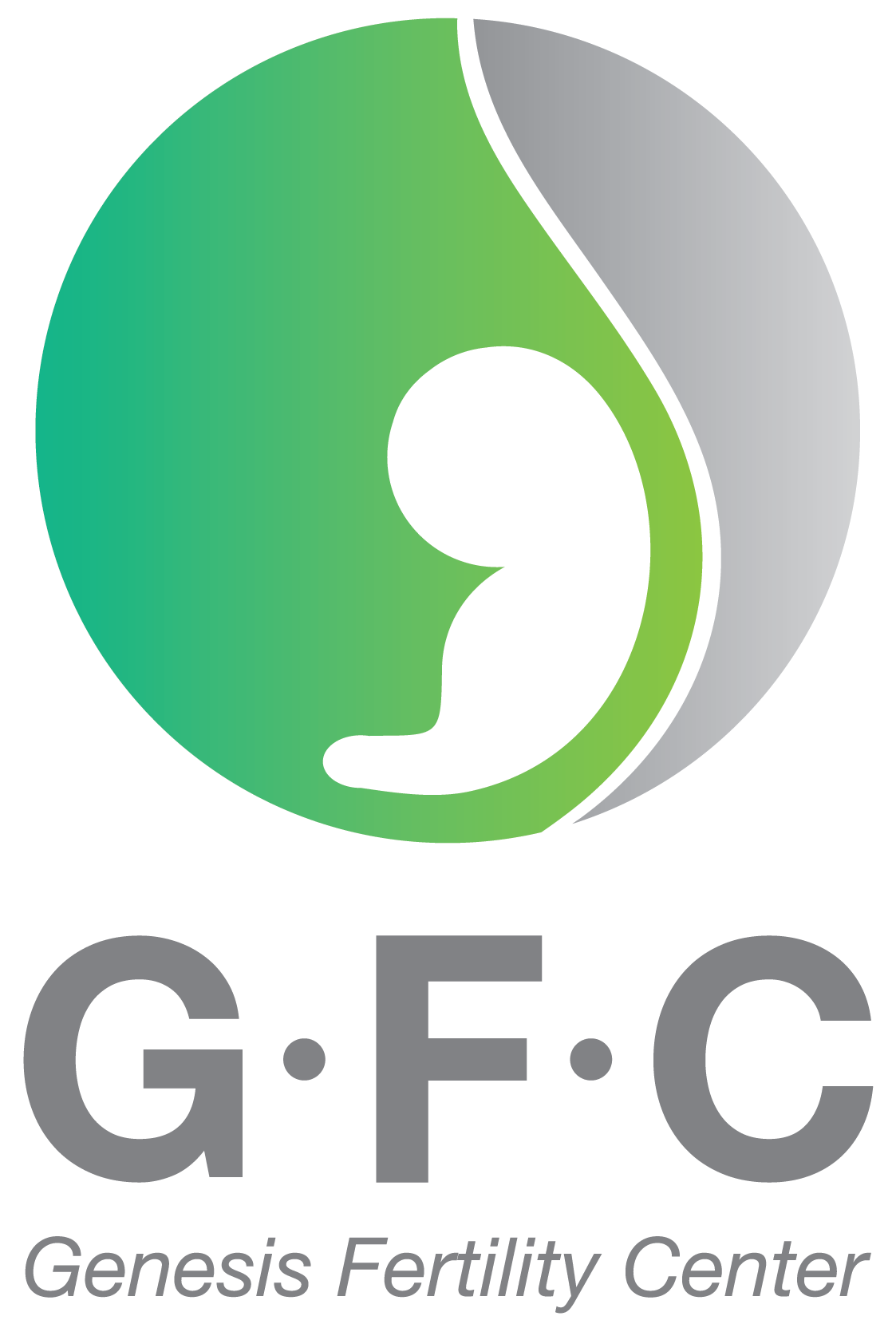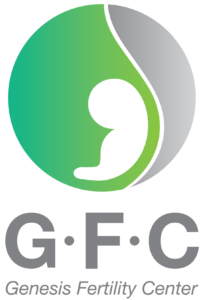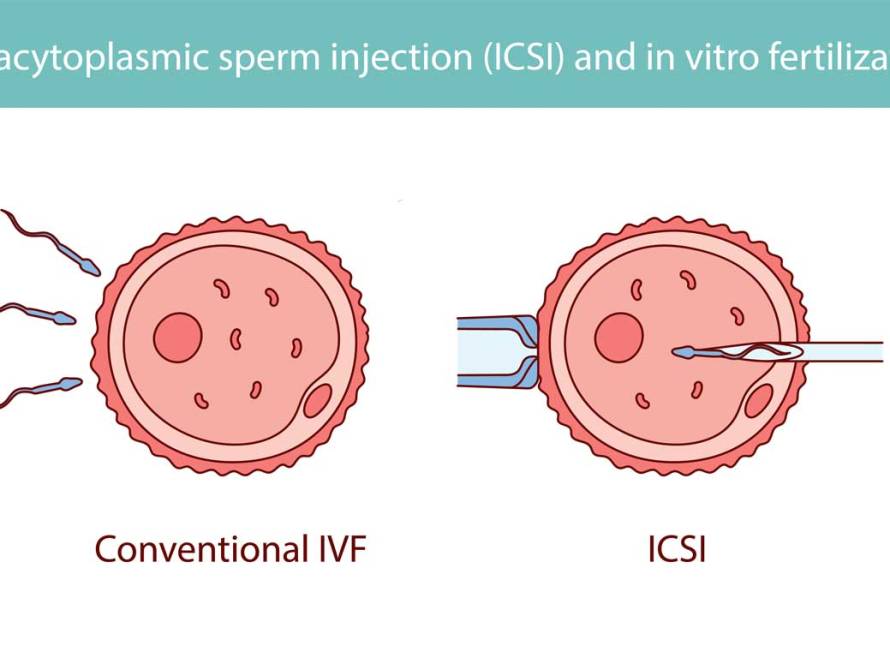Couples experiencing difficulty conceiving can increase their chances of successful pregnancy by undergoing ICSI treatment at GFC.
| Couples with difficulty conceiving who did not succeed in getting pregnant during their treatment with assisted reproductive technologies such as IUI and IVF may consider another option, which is ICSI. This technique has a higher success rate, ranging from 30–40%, which is considered a very high chance of success when compared to IUI and IVF. The high success rate of ICSI in achieving pregnancy has made it a popular choice for couples who have difficulty conceiving. As a result, hospitals and fertility clinics, such as the one that provides medical services and consultation for infertility, increasingly offer ICSI treatment for those who want to increase their chances of having a successful pregnancy. |
Why does ICSI increase the chance of pregnancy?
| ICSI or Intracytoplasmic Sperm Injection is a technique that does not result from the fusion of egg and sperm, but rather involves injecting a single sperm directly into an egg. The fertilized egg is then cultured and transferred into the uterus. Many people wonder why the success rate of ICSI is higher than that of previous treatments such as IVF and IUI. The reason is that injecting a single sperm directly into the egg allows for a 100% chance of fertilization. However, it should be noted that not all eggs will successfully cleavage and develop into embryos. Treatment of infertility through ICSI involves scientists examining suitable eggs for fertilization under a microscope to assess the internal structure and developmental stage. The process involves selecting the healthiest and strongest sperm and injecting it into a single egg, increasing the chances of successful fertilization. The steps of ICSI, including evaluating the internal structure of the egg and selecting the most suitable sperm, are as follows: |
– Scientists select the strongest and most suitable sperm for injection into the female’s egg.
– The optimal position for injecting the sperm into the egg is assessed with the aid of a high-powered microscope, ensuring accuracy and avoiding damage to the important internal structure known as the spindle. Research has shown that injecting the egg outside of the spindle results in higher rates of successful fertilization and better embryo quality.
For individuals experiencing difficulty conceiving and seeking to have children, the chances of successful pregnancy through ICSI treatment are approximately 65–70%, depending on the woman’s physical condition. If the woman is under 35 years old, the success rate for pregnancy is between 30–40%, while for those over 40, the chance drops to 10–20%. Therefore, the standard success rate for ICSI treatment is typically around 30–40%.
‘- Comprehensive planning and treatment: The ICSI treatment process takes approximately 2 months, during which the doctor oversees the egg stimulation phase, plans the appropriate amount of medication for optimal egg stimulation, retrieves the eggs, and transfers the embryos to the uterus.
- Expertise in embryo cultivation: At Genesis Fertility Center (GFC), scientists or laboratory teams are responsible for nurturing the embryos in a laboratory with a well-maintained temperature to ensure the embryos develop successfully.
- Advanced technology and precision: Genesis Fertility Center (GFC) utilizes Next Generation Sequencing (NGS) technology to analyze the genetics of embryos at a specific stage during the process of ICSI. This technology ensures a high level of accuracy in determining the quality of embryos, with a success rate of up to 99%. This increases the chances of successful embryo implantation and reduces the risks of miscarriage and genetic abnormalities.
- Embryo genetic testing process: Genesis Fertility Center (GFC) has a system for testing the genetics of embryos. This process is recommended for women who are over 35 years of age, have a history of previous pregnancies with genetic abnormalities, or have had children with severe genetic disorders such as Thalassemia. Additionally, women who have experienced more than two miscarriages before 12 weeks of pregnancy or who have not been successful in conceiving after two rounds of ICSI with embryo transfer are also candidates for this testing.
- The medical team directly graduated from reproductive medicine: Genesis Fertility Center (GFC) is a comprehensive treatment center for individuals with fertility problems in Thailand. The majority of the medical team have completed their education in the field of reproductive medicine from leading universities, giving them expertise and experience in treating individuals with fertility issues.
- Committed to teamwork: The team emphasizes teamwork, with medical professionals, scientists, obstetricians and gynecologists, and nurses working together throughout the treatment process, particularly during ICSI procedures. Patients are regularly updated on the development and growth of embryos to ensure they have a clear understanding of their future offspring.
- Consultation services: Genesis Fertility Center (GFC) understands the needs of couples seeking fertility treatments and provides consultation services through LINE application, with call center available to answer questions. The nursing team provides close monitoring and treatment information during patient visits, and emergency contact numbers are available 24/7 in case of any ICSI package-related emergencies.
- Patient notification system: Genesis Fertility Center (GFC) has a patient notification system that reminds patients to take their medication on time via phone calls. Timely medication administration is a critical factor in the success of treatment.
Couples who have difficulty conceiving should consider ICSI treatment.
ICSI treatment is usually considered by married couples who have tried other methods to overcome infertility such as IVF and IUI without success. If these methods fail, doctors may recommend ICSI treatment to increase the chances of pregnancy. Couples who should primarily undergo ICSI treatment are those who have male factor infertility, including abnormal sperm production in terms of quality, shape, and mobility, or have undergone vasectomy.
For female, women over 35 years of age may require ICSI treatment due to thicker egg walls, which create difficulty for sperm penetrating the egg, endometriosis, fallopian tube damage or blockage, ovulation disorders, and other reproductive system diseases, including female sterilization through tube tying, cutting, or blockage.
Currently, the Genesis Fertility Center (GFC) is a medical clinic that provides services for individuals facing infertility, in order to address their concerns and fulfil the desire to have children. The clinic offers consultation and recommends appropriate treatment methods, with a team of expert medical professionals and scientists specializing in obstetrics and gynecology, as well as a nursing team providing guidance throughout the process. The clinic utilizes the ICSI method for treating infertility, as it has a higher success rate compared to treatments using IVF and IUI.
If you are a couple seeking advice regarding infertility, the Genesis Fertility Center is a comprehensive clinic offering a range of services to address your concerns, from identifying the causes to selecting appropriate treatment methods that are cost-effective and have the highest chance of success. The clinic provides transparent preliminary cost assessments.
สามารถปรึกษาได้ที่
Call Center 097-484-5335
Monday–Friday: 9.00–20.00 Saturday–Sunday: 8.00–20.00.



